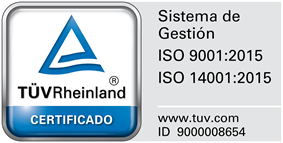On 22nd January 2018, the Travel Weekly run an opinion piece by Mrs. Vicki Brown of Responsible Travel. In this write-up, Mrs. Brown presented various arguments that clearly comprise an anti-zoo rhetoric.
We would like to point out the principal errors in the arguments formulated by Mrs. Brown. Not only do they fail to represent adequately the modern zoological gardens but also mislead the public, by completely ignoring the important labour realized by the modern zoological institutions, not to mention completely omitting the significant successes achieved in the area of animal welfare, conservation of biodiversity, education and sensibilization.
Thus, the Responsible Travel states that they only recognize the reproduction programs of those animal species that are considered endangered under the UICN classification. This approach is extremely narrow-minded and lacks the actual expertise in the issues of the animal conservation. To be precise, Mrs. Brown appears not to know that the Red List of Endangered Species under UICN changes from year to year, and that any, even currently non-endangered species can easily convert into a critically endangered one and this may happen faster than a zoological community can establish a solid reproduction population of the species under human care.
According to this short-sighted argument by Mrs. Brown, the society should first wait until the species becomes endangered, and only then take a certain action. We would like to underline that in many cases such retroactive actions may come too late. One example of such unjustifiably late action is the case of the vaquita a porpoise that lives exclusively in the waters of Baja California (Mexico). A failure to take timely conservation actions led to the situation when the population of these critically endangered dolphins have dropped to the number of only 30 individuals in the wild. The last chance for this cetacean was to establish a breeding program based on the knowledge and experience gained by the zoo community with other non-endangered porpoise species. But, unfortunately, it proved to be impossible to capture the last living individuals of the species safely, which means that it is more than likely that this species will sadly join a long list of animals extinct from our planet. On the other hand, if a reproduction program in human care for this species had initiated about 10 years ago or earlier, by now the zoo community could have already achieved a stable population of these animals giving them a chance to survive in the wild.
It is important to note that the modern zoological institutions do not work in isolation. There exists a number of highly respected associations that comprise the best knowledge and expertise in the issues of the animal welfare, management of the zoological gardens and aquariums, including the reproduction programs and conservation of biodiversity. Only a few examples are World Association of Zoos and Aquarium (WAZA), American Association of Zoos and Aquariums (AZA), European Association of Zoos and Aquariums (EAZA), Iberian Association of Zoos & Aquaria (AIZA) and many others.
Thus, the EAZA has a sophisticated management system for the species populations in place by means of which international experts give their recommendations as to which species should have bigger representation in the zoological gardens and which ones do not require reproduction programs because their populations in the wild are secure and well numbered. Such approach allows to measure effectively and in a timely fashion, which actions should be taken to ensure a balance in the populations of each species.
Mrs. Brown claims having read different reports and having spoken to NGOs. We are curious to know if the Responsible Travel actually consulted any of the EAZA reports or professionals while evaluating the issue at hand. Why? Because they are the authentic experts in the issues of the conservation of species. Most of EAZA experts are also members of the Conservation Breeding Specialist Group of the UICN, the most authoritative scientific and academic organization in the world in the issues of the ex situ conservation.
Mrs. Brown then proceeds to claim that many people are not aware of the damage caused by the zoological gardens, or, at the very least of the lack of the benefits created by them. It is probably because, despite the efforts of Responsible Travel and her own, the zoological gardens do bring forth huge benefits for the conservation. Just in terms of funding, the zoological gardens, which are members of the European Association of Zoos and Aquariums, generate more than 20 million euros each year that are directly dedicated to the efforts of the conservation of biodiversity worldwide. Can this be referred to as “causing damage”? Or is it maybe a “lack of benefits”?
It was mentioned that the zoological gardens (both, accredited zoos who are also members of zoological associations and the rest of zoos who do not belong to the associations) dedicate, on the average, 3% of their profits of the nature conservation. This actually means that many of them dedicate higher percentages of the profits, above 10% to be precise, for these purposes. On the other hand, how much of their profits has the Responsible Travel dedicated to the conservation of the animals each year to feel in a position to judge or, otherwise, belittle the efforts of the zoological institutions? How much funding, in general, do tour operators and travel agencies dedicate to the conservation of the biodiversity?
According to Mrs. Brown, the Responsible Travel would like to debunk the myths about conservation. It would be hard for them to achieve that considering that even UICN recognizes the important role of the zoological gardens in the conservation of the biodiversity. Is the case of recuperation of Californian Condor, which was on a brink of extinction, a myth? Or the recuperation of the Przewalski horse, which was extinct, is it also a myth? Or the case of the European bison? These are just some of many undisputed successes of the dedicated work of the zoological community.
It is curious that Mrs. Brown says that they had solicited an independent inquiry that has demonstrated that the visitors were not aware of the lack of conservations efforts realized by the zoos. It is not surprising at all – it is quite clear that the work of the zoological gardens has a positive effect on the conservation and the visitors can see that for themselves.
Another argument that Mrs. Brown employs is that the animals in captivity do not express their natural behaviours. That is a generalization that was not sustained by any further facts or supporting information. It is obvious that a lion in a zoological garden does not demonstrate the behaviour of ambushing, hunting and killing a gazelle. At the same time, there are many other natural behaviours that a lion does express, and from this standpoint, this represents a huge educational potential.
From what it appears, the only source of information that Mrs. Brown and the Responsible Travel utilize is the Born Free EU Zoo Enquiry. They do not consult any zoological associations, not even the UICN. The only used document was created by an NGO whose only goal is to close all the zoological gardens – therefore, it does not impress us as a reliable, independent or expert opinion. Moreover, the referred document represents an analysis regarding the application of the European Zoos Directive and, at no point, does it concern the zoological gardens as a whole, or the adequate work that they do, but concentrates entirely in the problems of the application of the directive document.
Summarizing, we would like to stress that informing the public that the zoological gardens benefit and contribute to the conservation is not a marketing strategy, it is a fact! The zoological community is the primary direct contributor to the nature conservation after the public administrations. Accredited zoological gardens receive over 700 million visitors each year, many of whom are children and students. It has been scientifically proven that the zoological gardens have a positive educational effect. As an example, the zoos have been successful for popularization of the term Biodiversity, which was one of the objectives of the UNO’s “Millennium with a goal to reduce the loss of the biodiversity of our Planet.













